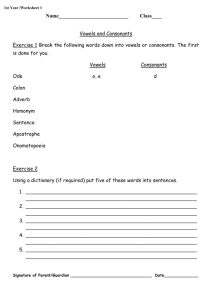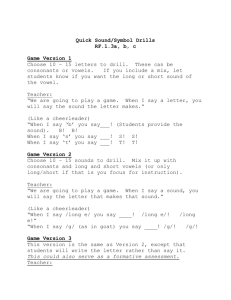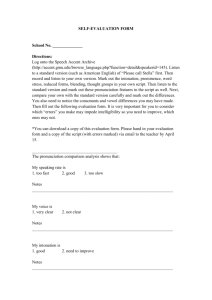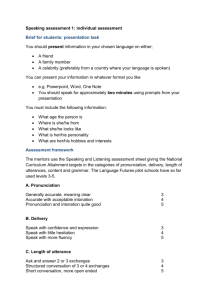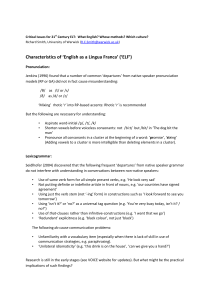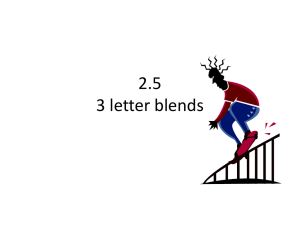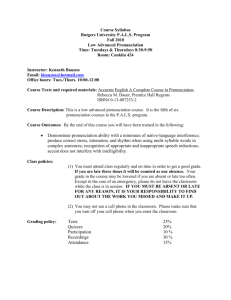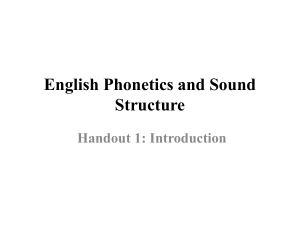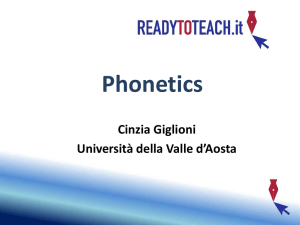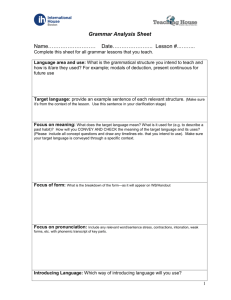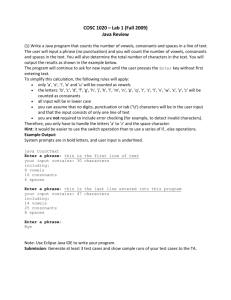ORAL PRESENTATION
advertisement
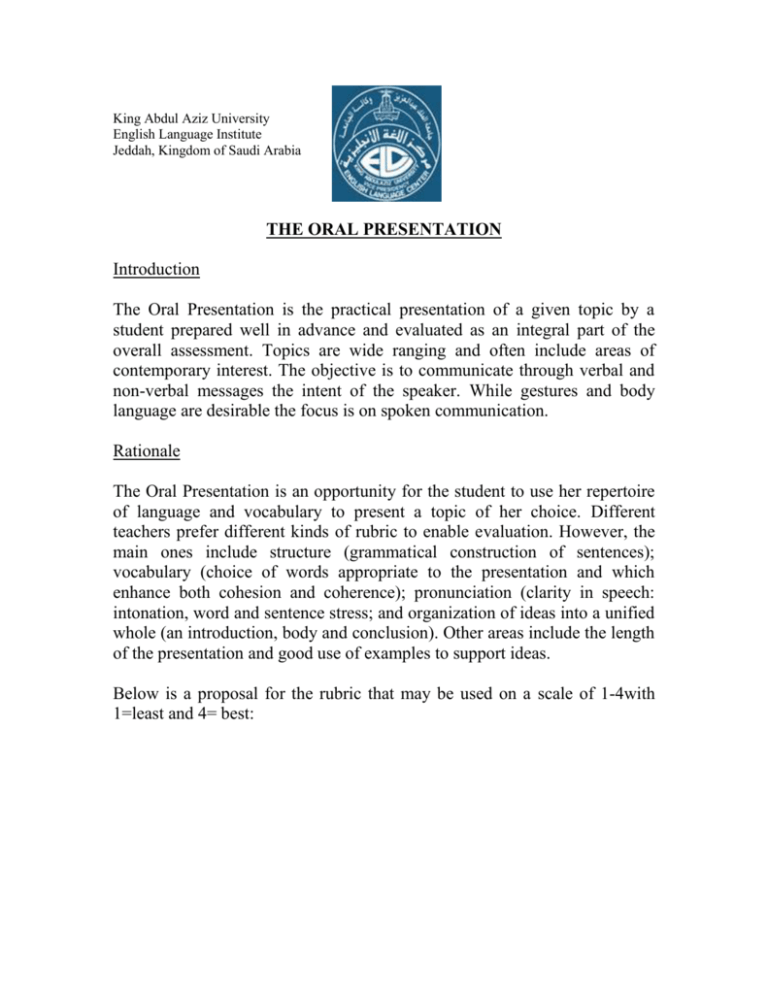
King Abdul Aziz University English Language Institute Jeddah, Kingdom of Saudi Arabia THE ORAL PRESENTATION Introduction The Oral Presentation is the practical presentation of a given topic by a student prepared well in advance and evaluated as an integral part of the overall assessment. Topics are wide ranging and often include areas of contemporary interest. The objective is to communicate through verbal and non-verbal messages the intent of the speaker. While gestures and body language are desirable the focus is on spoken communication. Rationale The Oral Presentation is an opportunity for the student to use her repertoire of language and vocabulary to present a topic of her choice. Different teachers prefer different kinds of rubric to enable evaluation. However, the main ones include structure (grammatical construction of sentences); vocabulary (choice of words appropriate to the presentation and which enhance both cohesion and coherence); pronunciation (clarity in speech: intonation, word and sentence stress; and organization of ideas into a unified whole (an introduction, body and conclusion). Other areas include the length of the presentation and good use of examples to support ideas. Below is a proposal for the rubric that may be used on a scale of 1-4with 1=least and 4= best: 4 Structure Language is clear, varied and precise; no significant lapses in grammar 3 Language is generally clear and coherent; only a few significant lapses in grammar 2 Many grammatical errors; little control over sentence structure; some degree of clarity Vocabulary 4 Effective and varied use of vocabulary which conveys meaning precisely 3 Some care is shown in choice of vocabulary; it is used with varying degrees of accuracy 2 Frequent use of wrong words which affect meaning; sometimes words are used appropriately Pronunciation 4 Effective production of vowels and consonants; minor errors in word, sentence stress and intonation 3 Most vowels and consonants are pronounced clearly; very few errors in word, sentence stress and intonation 2 Consistently produces some vowels and consonants; some errorsin word, sentence stress and intonation 4 3 2 Ideas are clearly organized and logically sequenced; adequate support of ideas Ideas are clear but lack logical sequencing; adequate support of ideas Some evidence of organization; somewhat adequate support of ideas Organization of ideas 1 Serious grammatical errors which hinder comprehension; fragmented sentence structure 1 Vocabulary is so limited that it makes it difficult to understand presentation; rarely accurate or appropriate 1 Difficulty in producing vowels and consonants, word and sentence stress, intonation which make the presentation difficult to understand. 1 There is no organization to the presentation at all; no ideas to support the presentation Students may also need to be evaluated for the following in addition to the rubric given above for a more comprehensive assessment. This entails the assessment of the presentation as a whole. 1- Student reads from notes like a report and makes little or no eye contact with audience. - the length of the presentation is less than the given time - mumbles words 2- Student occasionally reads from notes makes some eye contact with the audience length of the presentation is satisfactory speaks clearly with a few pauses 3- Student refers to notes very occasionally using them as prompts makes eye contact and exhibits a good level of confidence length of presentation is appropriate speaks clearly and distinctly with a good level of fluency 4 – Student nearly never refers to notes - makes eye contact and incites interest in her presentation - length of presentation is appropriate - speaks loudly, clearly and confidently It would do well to bear in mind that the level of the students in the mixed ability classes range from the intermediate to the lower intermediate, so it is important to ensure that there is a very supportive environment within the classroom before and during the evaluations. Prepared by Ozma Siddiqui
